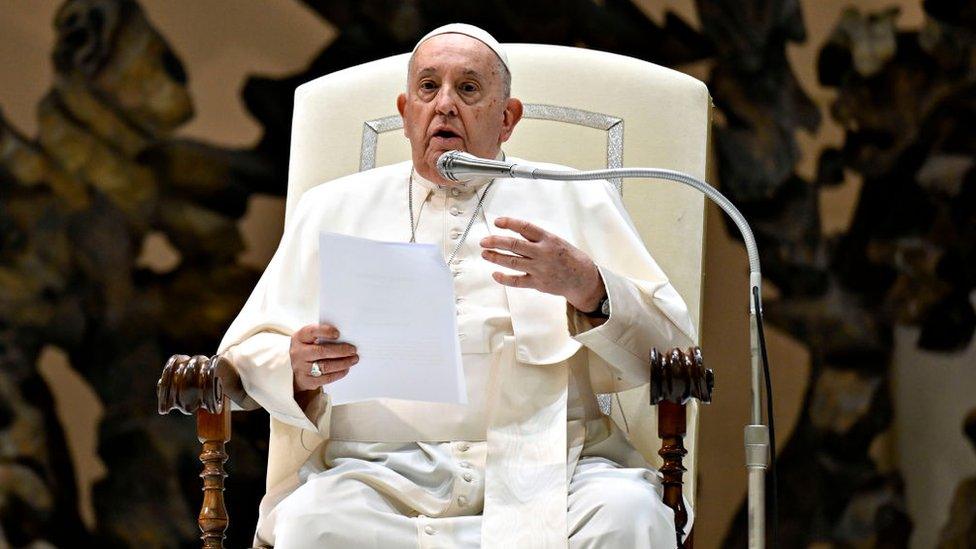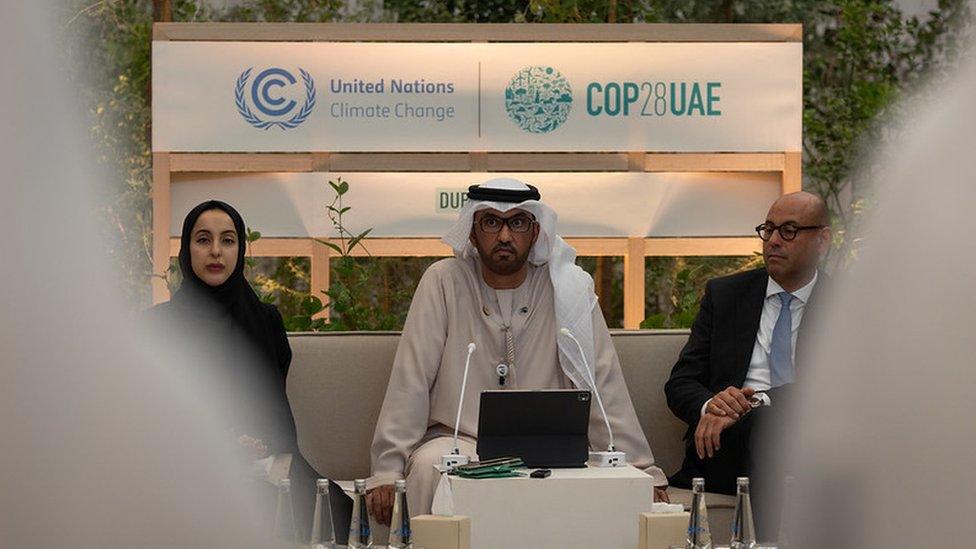Pope Francis calls for end to fossil fuels at COP28 in Dubai
- Published

The Pope threw his weight behind calls for an end to fossil fuels in a message delivered here at COP28.
In a wide-ranging statement, Pope Francis called for an end to coal, oil and gas as well as lifestyle changes to save the planet.
He also asked for debt forgiveness for poorer countries hit by climate change.
As the pontiff was unable to attend the Dubai summit in person because of illness, his speech was read by Vatican Secretary of State Cardinal Parolin.
With a long standing interest in climate issues, Pope Francis was set to make history by becoming the first Pope to address the Conference of the Parties, or COP as it is known.
However the 86-year old leader of the Catholic Church was forced to cancel his trip as he is still recovering from flu and inflammation of his lungs.
In his place, Cardinal Pietro Parolin delivered a strong statement on the impacts that climate change was having on the world and what global leaders needed to do to tackle the issue.
At its heart was the message that climate change signals the need for major political change.
COP28 must be a turning point, the pontiff said.

Sultan Al-Jaber is tasked with presiding over COP28 talks
The ecological transition to save the world could be done by embracing renewable energy, "the elimination of fossil fuels, and education in lifestyles that are less dependant".
There has been growing political momentum at this gathering for a definitive statement on the future use of coal, oil and gas, the main sources of the warming gases that are harming our planet.
The president of COP28, Sultan Al-Jaber, has said the phase-out of these fuels is "inevitable", although the oil company he runs has embarked on a major expansion of production.
The Pope's statement criticised efforts to shift the blame for the ecological and climate crises to the poor and high birth rates.
He also singled out the biggest carbon emitting countries who "were responsible for a deeply troubling ecological debt".
It would only be fair, he said, that these countries wipe out the financial debts of poor nations because of their excessive use of fossil fuels.
"The Pope's message is very well timed as we move into discussions on a global stocktake at COP28," said Neil Thorns from Catholic international development charity, Cafod.
"These discussions must be a time for leaders to heed his call: not for a partial change, but a new way of making progress together, and for choosing a culture of life over a culture of death."